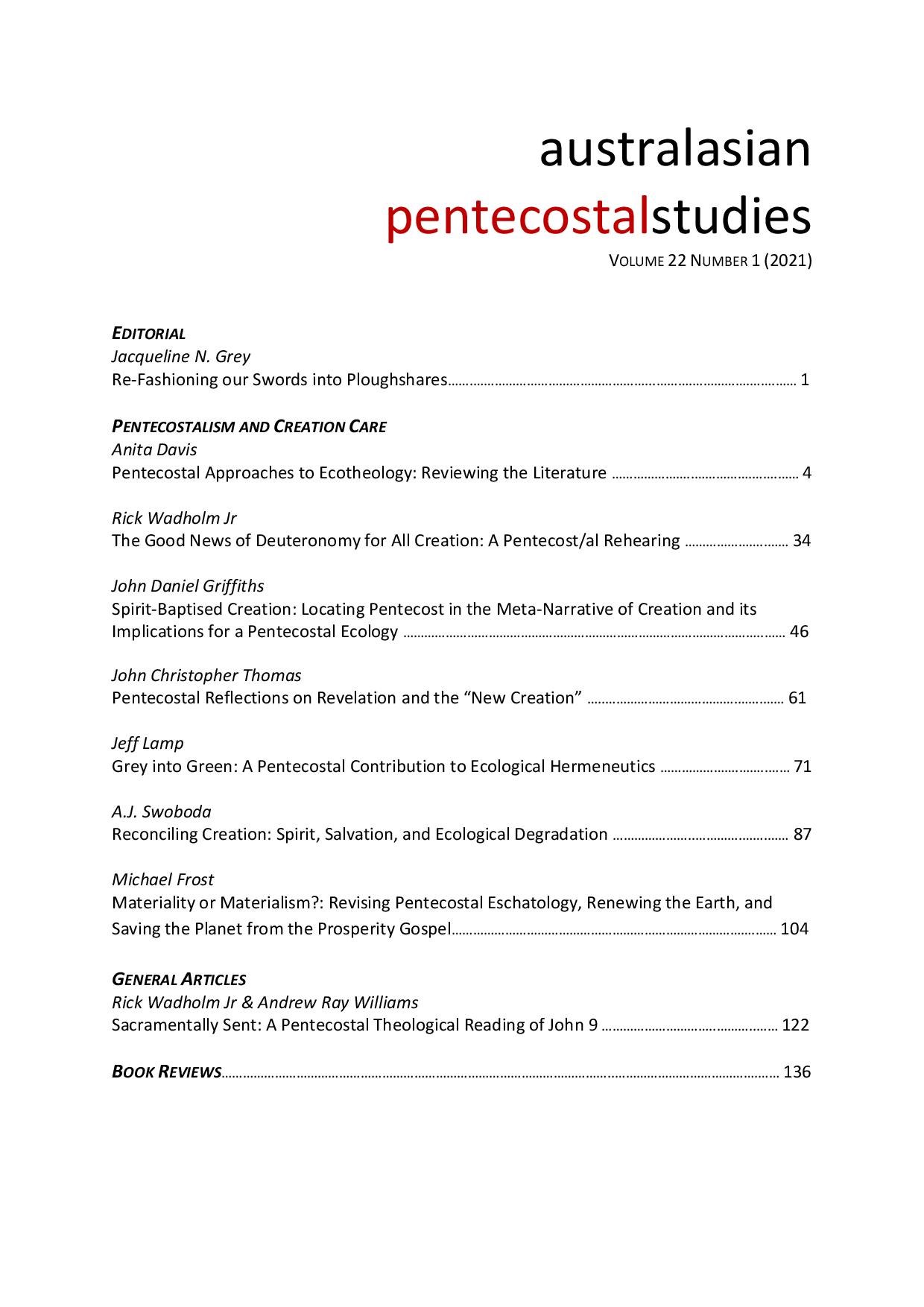Grey into Green: A Pentecostal Contribution to Ecological Hermeneutics
Abstract
When Lynn White, Jr., published his provocative article, “The Historical Roots of Our Ecologic Crisis,” in the journal Science in 1967,[1] the environmental movement in the United States was in its early stages, and went largely unaddressed by Christians. To many Christians in the United States, the media images of the movement looked too much like the larger countercultural movements, with longhaired young people speaking out against governmental inaction and corporate disregard for the wellbeing of the natural world. These people were deemed un-American and the movement they represented might be summarily dismissed. But then White’s article laid the bulk of the responsibility for the ecological crisis squarely on Christianity. He argued that biblical passages such as Genesis 1:26–28 had been interpreted throughout Christian history as a warrant to exploit the natural world for human expediency and thriving. Coming from a historian by training, White’s charges carried weight among a secular audience that had little exposure to the resources of historic Christianity. However, once White’s charges were published, they caught the attention of several Christian thinkers who set out on a quest to defend Christianity from these charges. Here was born a concerted effort to develop a Christian ecotheology. Secondarily, the seeds were planted that would eventuate in a branch of biblical interpretation known as ecological hermeneutics.
The present essay will highlight key moments in the development of ecological hermeneutics for the purpose of identifying a possible contribution from another hermeneutical quest, the development of a distinctive Pentecostal hermeneutic. Both endeavors have generated considerable momentum in their quests, with voices contributing from quite varied global audiences. No attempt will be made here to provide exhaustive historical analyses of these hermeneutical ventures, nor will there be any attempt to identify all of the various expressions of these hermeneutics. Rather, the focus will be to conduct a sort of conversation between two contributors to their respective quests. Representing ecological hermeneutics will be Australian Norman Habel, considered by many the father of ecological hermeneutics, while representing Pentecostal hermeneutics will be American Chris Green, one of the leading voices in Pentecostal theology today. To begin, we will look briefly at the development of ecological hermeneutics and Norman Habel’s distinctive contribution to it.
Downloads
Published
How to Cite
Issue
Section
License
Authors who publish with this journal agree to the following terms:
- Authors retain copyright and grant the journal right of first publication with the work simultaneously licensed under a Creative Commons Attribution License that allows others to share the work with an acknowledgement of the work's authorship and initial publication in this journal
- Authors are able to enter into separate, additional contractual arrangements for the non-exclusive distribution of the journal's published version of the work (e.g., post it to an institutional repository or publish it in a book), with an acknowledgement of its initial publication in this journal.
- Authors are permitted and encouraged to post their work online (e.g., in institutional repositories or on their website) prior to and during the submission process, as it can lead to productive exchanges, as well as earlier and greater citation of published work (See The Effect of Open Access).


